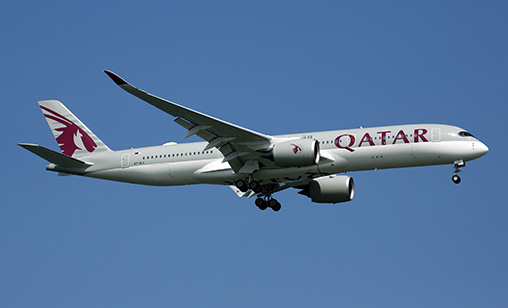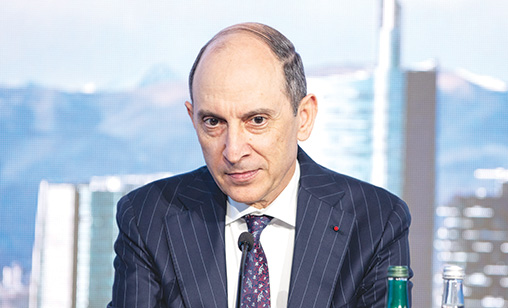News Backgrounder
Gradual recovery ahead predicts Qatar Airways boss Akbar al Baker
As COVID-19 runs its terrible course, Qatar Airways has emerged as the largest long-haul carrier to operate during the pandemic. How has it expanded its network when most of its global peers have been forced to almost exorcise their fleets? Associate editor and chief correspondent, Tom Ballantyne, reports on the crisis strategy of the Doha-headquartered carrier.
June 1st 2021
If there is one issue that riles Qatar Airways Group CEO, Akbar al Baker, it is the slightest suggestion the US$2 billion cash injection it received from its government owners last year was a bailout. Read More » “Frankly, we are a state-owned company. So there is no question of a bailout. Whatever funding we would receive is equity into the company,” he insists.
The semantics of the description aside, there is little doubt the Qatari carrier, like airlines worldwide, needed to boost its financial coffers in the face of COVID-19. But the Doha-based airline has not only been confronting the coronavirus crisis. It also has just started to recover from a three-year embargo imposed on it by neighboring Bahrain, Egypt, Saudi Arabia and the UAE. The four countries barred the carrier from flying through their airspaces, a decision that cost the airline millions of dollars in re-routed flights and increased fuel costs.
 |
After reporting a loss of $1.3 billion in the year to March 31, 2019, 2020 delivered more pain in the form of a $1.9 billion loss. Yet the often controversial and always forthright Qatar Airways Group CEO, Akbar Al Baker, declared the airline “continues to remain resilient” and insisted the fundamentals of the business were strong.
The airline carried 32.4 million passengers in the 2019-2020 fiscal year; a 10% increase over the previous 12 months. During that period, its rivals were shrinking their international networks, but destinations served by Qatar never sank below 30.
The latest independent data from OAG reaffirmed Qatar Airways as the largest airline in the world in terms of Available Seat Kilometers (ASK), offering more global connectivity to its passengers than any other carrier worldwide. Its network of at least 1,000 flights a week to more than 130 destinations delivered 2.6 billion ASKs in March, including operating the largest number of flights to international destinations.
In recent months it has added Doha to San Francisco, Seattle, Abuja, Accra, Luanda, Brisbane and Cebu. San Francisco and Seattle, launched in December and January, respectively, are the airline’s 10th and 11th U.S. destinations, surpassing the North American destinations it operated into the U.S. pre-COVID-19.
Undoubtedly, the key to the carrier’s ability to re-launch routes or open destinations has been its alacrity in introducing health and hygiene regulations that reassure passengers flying is safe.
Qatar Airways was the first global airline to be awarded a 5-Star COVID-19 Airline Safety Rating by international air transport rating organization, Skytrax. The airline has received a similar rating from the carrier’s home airport, Hamad International Airport (HIA). Safety precautions on the carrier’s aircraft and at the airport include high-tech temperature sensors, ultraviolet disinfectant processes, mask-wearing, providing Personal Protective Equipment (PPE) for cabin crew and complimentary protective kit and disposable face shields for passengers.
The airline also is the first international carrier to install Honeywell’s Ultraviolet (UV) Cabin System, operated by Qatar Aviation Services, to advance onboard hygiene. The measures have been pressed home to prospective travellers with a massive global television advertising campaign.
“I can assure you as the CEO of an airline, my biggest priority is to protect my passengers and my crew. With all the precautions we have adopted and the measures we take, infections on airplanes are minimal,” said al Baker.
“At Qatar Airways, we have dedicated ourselves to being the airline passengers can rely on, operating with the highest hygiene and bio-safety standards.”
 |
Cargo operations are a major part of Qatar’s strategy. In January it took delivery of three new 777 freighters, bringing its freighter fleet to 30: two 747F, 24 777F and four A330F. “With the arrival of these new freighters, we are injecting much needed capacity into the market, helping global supply chains at a critical time in the pandemic. The added capacity will enable us to support the logistics around the COVID-19 vaccination delivery, which is projected to be one of the greatest logistical challenges for the industry,” al Baker said.
Throughout the crisis, Qatar Airways Cargo has been transporting essential supplies, pharmaceuticals, perishables and other vital cargo worldwide either as belly-hold cargo on passenger flights or on freighters. It is continuing to fly its scheduled freighters and also operating more than 500 freight charters of relief goods, PPE and medical aid to impacted countries.
The cargo arm has worked with governments and NGOs to transport more than 250,000 tonnes of medical and aid supplies to impacted regions around the world on both scheduled and charter services. This equates to approximately 2,500 fully loaded 777 freighters.
While all these initiatives paint a rosy picture of the Gulf carrier, Qatar also has had some setbacks. It lost approximately $450 million from its ill-fated investment in Air Italy. The carrier collapsed last year. And it is almost certainly dumping its 10 A380s. “Frankly, we have taken impairment on five of them. We are writing off five of the 10 we have,” Al Baker said in a recent CNN interview.
“If the pandemic extends to the next two to three years, we will be forced to take impairment on the remaining five. There is no future for the A380. It was the wrong aeroplane at the wrong time. It is something passengers love,” he said.
“Many liked to travel on the A380. It’s very quiet and it is very spacious, but at the end of the day, for the operator, it is really painful to keep them in the skies. The operating costs are punishing and so are the maintenance costs. An A380 at C-Check is three times the cost of a 777 or an A350-1000.”
Al Baker believes global travel and tourism will continue to gradually recover. “Developments to roll out vaccines worldwide look promising, giving us greater confidence, particularly as we look at the second half of 2021,” he said.
“Much work has been done by Qatar’s hospitality industry to ensure visitors can enjoy a safe visit when its borders open. I believe travellers will be eager to see what we have to offer, especially as interest in Qatar will grow in the run-up to the 2022 FIFA World (soccer) Cup in Qatar.”